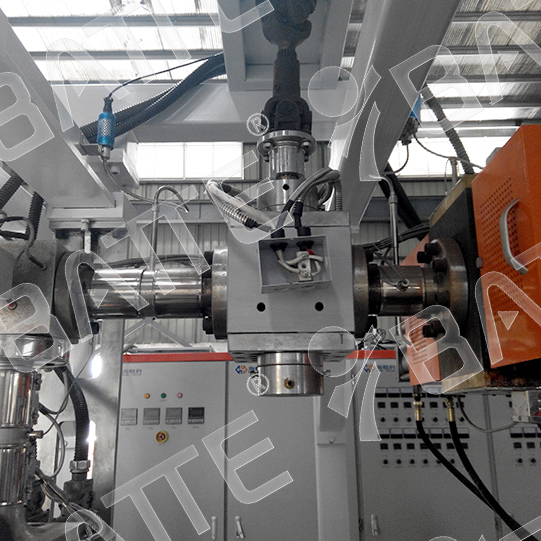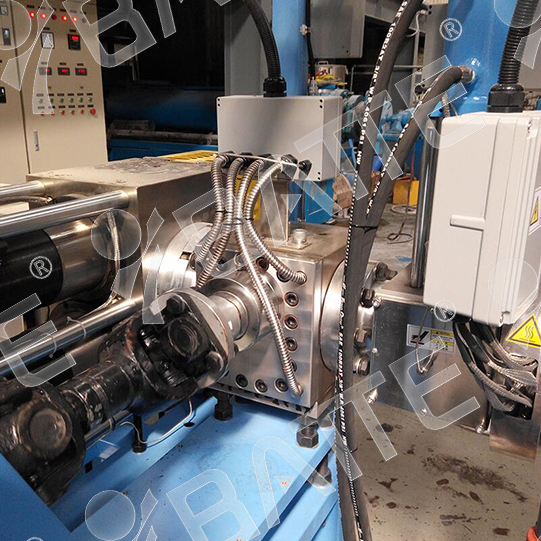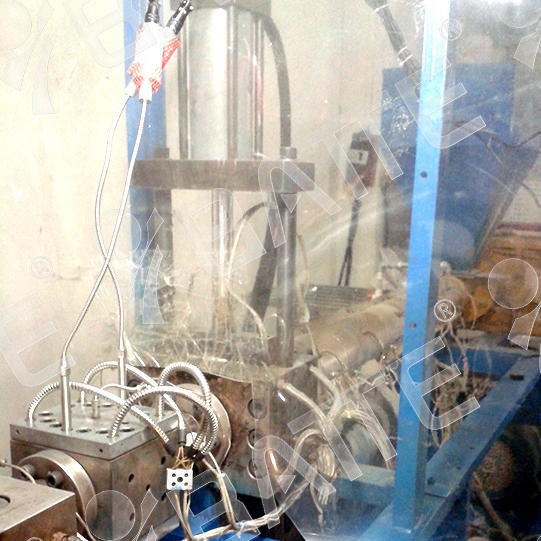Melt Pump for Plastic Wire Fiber Extrusion
precisely controlling the melt flow rate and pressure, it significantly enhances fiber quality and production stability.
I. Technical Advantages
Enhanced Fiber Quality
Strength Improvement: In nylon 66 filament drawing, the fiber breaking strength increases from 6.5 cN/dtex to 7.2 cN/dtex after using the melt pump.
Uniformity Optimization: The CV value (coefficient of variation) decreases from 3.5% to 1.8%, meeting high-end textile requirements.
Energy Conservation and Cost Reduction
Reduces extruder backpressure by 20%–30%, lowering motor energy consumption by 15%–20%.
Extends screw lifespan by over 30%, reducing maintenance costs.
Process Adaptability
Suitable for melt viscosities ranging from 1 to 4000 Pa·s, covering materials such as PP, PET, PA, and more.
Maximum operating temperature of 400°C, meeting high-temperature spinning requirements.

II. Application Scenarios
Chemical Fiber Drawing
In the production of polyester, nylon, and other filaments, the melt pump ensures stable pressure in the spinning assembly, reducing filament breakage rates.
Plastic Flat Yarn
In applications like woven sacks and geotextiles, it improves the thickness uniformity of flat yarns, reducing defect rates.
Specialty Fibers
In the production of high-performance fibers such as carbon fiber precursors and aramid, controlling melt stability is critical to fiber performance.

III. Selection and Maintenance Guidelines
Key Selection Parameters
Displacement: Calculated based on line speed (e.g., 500 m/min) and single-filament cross-sectional area. For example, when producing 0.2 mm-diameter PP monofilaments, a 30 cc/r pump model is required.
Pressure: Consider die resistance (e.g., 15 MPa) and pipeline losses; select a pump with a rated pressure ≥25 MPa.
Material: For high-temperature scenarios (e.g., PET melt temperature of 285°C), alloy steel (e.g., 38CrMoAlA) with nitriding treatment is recommended.
Maintenance Considerations
Regular Cleaning: Disassemble and inspect gear clearances every 2000 hours to remove carbon deposits.
Temperature Control: Maintain uniform pump body temperature (±1°C) through electric heating or heat medium circulation.
Seal Optimization: Use a combination of spiral seal and packing seal to control leakage within 0.5 mL/h.

This translation maintains technical accuracy while ensuring clarity and readability for an international audience.
Email: sale@meltpump.com
WhatsApp: +86 158 38331071